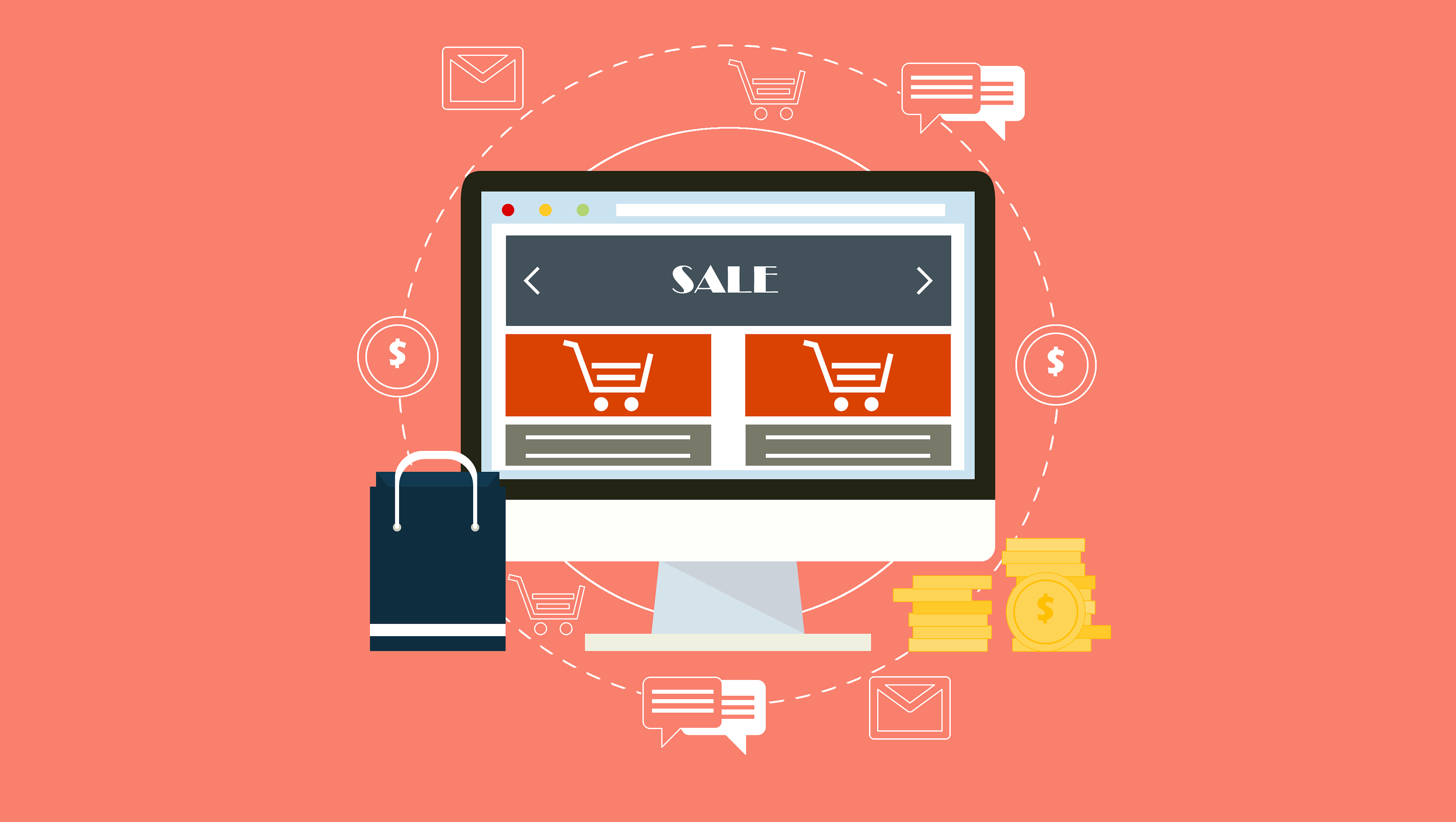For those new to the digital marketplace, embarking on an eCommerce website might seem like a daunting endeavour. Yet, the success of an online venture often hinges on one fundamental decision: the choice of platform.
For newcomers, making an informed selection is paramount. The right platform can be the bedrock upon which a flourishing online business is built, while a poor choice could spell hurdles and hiccups in the future.
Why Start an eCommerce Website?
eCommerce isn't just a buzzword; it's the future of retail and commerce. Let's take a look at why venturing into this domain might be one of the best business decisions you could make:
- Global Market Reach
In the traditional retail setting, a business's reach is often limited to its immediate locality or city. With an eCommerce website, these geographical constraints dissolve. A new eCommerce site can cater to customers from any corner of the globe, instantly expanding its potential customer base into the billions. Whether you're selling artisanal crafts or tech gadgets, the world becomes your marketplace. - Low Operational Costs
While setting up a physical store entails significant overheads—from rentals to utilities—an eCommerce store is comparatively cost-effective. There's no need for a prime real estate location or large staff. Plus, with dropshipping models and third-party logistics, even inventory and shipping can be outsourced, further slashing operational costs. - Flexible Business Hours
The beauty of an online store is that it never closes. Unlike a physical store with set business hours, an eCommerce website operates round the clock. This 24/7 availability means customers from various time zones can shop at their convenience, ensuring a continuous stream of potential sales. This flexibility not only boosts revenue opportunities but also caters to the modern consumer's expectation of shopping on their terms and time.
The reasons to embark on an eCommerce website in today's digital-dominated age are numerous. But success hinges on a myriad of factors, the first of which is choosing the right platform to set up your digital storefront.
Checklist for Launching a New eCommerce Website
Starting a new eCommerce website requires meticulous planning, foresight, and careful execution. From selecting the right products to ensuring legal compliance, every step plays a pivotal role in the success of your online venture. Here's a comprehensive checklist to guide you through the process:
Market Research and Product Selection
- Identify a Niche
Before diving into eCommerce, it's crucial to find a specific niche that aligns with your passion and has potential market demand. This could be anything from eco-friendly products to unique artisanal crafts. Remember, a well-defined niche can help you stand out in a crowded marketplace. - Validate Product Demand
Once you've pinpointed a niche, it's essential to validate the demand for your chosen product. Utilize tools like Google Trends, competitor analysis, and market surveys to ascertain whether there's a genuine interest in your product. It's always better to test the waters before diving in.
Business Model and Planning
- Dropshipping vs. Holding Inventory
Decide on your eCommerce business model. With dropshipping, you don't hold inventory. Instead, you partner with suppliers who fulfill orders directly to customers. It's a low-investment model but might offer thinner margins. On the other hand, holding inventory allows for better quality control and faster shipping but requires higher upfront investment and storage space. - Return and Shipping Policies
Draft clear, transparent, and customer-friendly shipping and return policies. Ensure that these policies are easily accessible on your eCommerce website. Offering free shipping, if feasible, can be a unique selling point. Meanwhile, a fair return policy can build trust and enhance customer loyalty.
Legal and Compliance
- Business Licenses
Ensure you have the necessary licenses to operate your eCommerce website. The requirements can vary based on your location and the nature of products you're selling. Consulting with a legal professional can offer clarity on what's needed. - Taxes and Regulations
Stay compliant by understanding the tax implications of your eCommerce business. Consider sales tax, VAT, or other local taxes. Also, familiarize yourself with regulations surrounding online sales, especially if you plan on selling internationally.
Store Design and Branding
- Choosing a Theme
The design of your online store plays a significant role in attracting and retaining customers. Platforms like WooCommerce and Shopify offer a plethora of themes tailored for various niches. Choose one that aligns with your brand ethos and offers a seamless user experience. - Logo and Branding Materials
A memorable logo can set your brand apart. Invest in professional branding materials, including a logo, banners, and other graphics that resonate with your target audience. Remember, consistent branding can go a long way in establishing brand recall and loyalty.
Launching a new eCommerce website might seem like a formidable task, but with the right planning and a step-by-step approach, you can pave the way for a successful online venture.
Deep Dive: WooCommerce vs. Shopify
For eCommerce platforms, two giants consistently emerge as top choices for aspiring online entrepreneurs: WooCommerce and Shopify. While both offer robust solutions for online selling, their features and functionalities cater to different needs and preferences.
WooCommerce
WooCommerce is a free, open-source WordPress plugin that turns a WordPress website into a full-fledged online store.
Pros of WooCommerce
- Open-source
As an open-source platform, WooCommerce allows for complete ownership of your content. You're not tied down by any platform's terms, and you can modify the code to suit your needs. - Highly customizable
With thousands of plugins and themes available, WooCommerce offers limitless possibilities for eCommerce website customization. You can tweak virtually every aspect of your store, from its appearance to its backend functionalities.
Cons of WooCommerce
- Requires hands-on management
WooCommerce demands a steeper learning curve, especially if you're unfamiliar with WordPress. From updates to backups, you'll need to manage several aspects yourself. - Hosting responsibility
Unlike hosted platforms, WooCommerce requires you to source and maintain your own hosting, which can be a challenge for beginners.
Shopify
Shopify is a comprehensive, hosted eCommerce platform that provides everything you need to set up and manage an online store.
Pros of Shopify
- User-friendly
Shopify is designed for those who may not have a technical background. Its intuitive interface and drag-and-drop builder make store set-up straightforward and hassle-free. - Built-in hosting
With Shopify, there's no need to worry about hosting. The platform provides secure, fast, and reliable hosting, ensuring your store is always up and running.
Cons of Shopify
- Monthly fees
Shopify operates on a subscription-based model, with monthly fees that can add up, especially if you opt for higher-tier plans or additional plugins. - Limited customization
While Shopify offers a good range of themes and plugins, its customization capabilities are not as expansive as open-source platforms like WooCommerce. Some advanced customizations might require hiring a developer or purchasing premium plugins.
Both WooCommerce and Shopify present strong cases for different types of merchants. Your decision should hinge on your comfort level with technology, budget, and the degree of customization you desire for your new eCommerce website.
How to Choose Between WooCommerce and Shopify?
Navigating the decision between WooCommerce and Shopify might feel like a daunting task. Both platforms bring significant advantages to the table. To make an informed choice, you need to weigh several factors against your business goals and personal preferences. The key considerations:
Cost Implications
- WooCommerce
Being an open-source platform, WooCommerce itself is free. However, you'll incur costs for web hosting, domain registration, and certain plugins or themes. While it can be more cost-effective initially, the costs can grow as you scale or need additional functionalities for your eCommerce website. - Shopify
Shopify operates on a subscription model. There are fixed monthly fees based on the plan you choose. This fee includes hosting, and Shopify also offers a range of free themes. However, some themes, plugins, or advanced features can come with additional costs. While it might seem pricier upfront, you have a clearer picture of your monthly expenses.
Technical Proficiency
- WooCommerce
If you're familiar with WordPress, diving into WooCommerce will be smoother. It requires a bit of technical know-how, especially for customizations or troubleshooting. You're in charge of updates, backups, and security. - Shopify
Built for the non-tech savvy, Shopify’s user-friendly interface is perfect for those without coding experience. The platform offers a more hands-off approach, handling updates and security on your behalf.
Scalability Needs
- WooCommerce
Since you have complete control over your WooCommerce eCommerce website, scaling can be as expansive as your technical expertise (or your developer's expertise) allows. However, you'll need to ensure your hosting can handle increased traffic and sales volume. - Shopify
Shopify is built for growth. Their hosting can handle increases in traffic, and they offer higher-tier plans specifically designed for larger businesses. However, as your business grows, so might your monthly fees.
If you're starting a new eCommerce website and prioritize full control, flexibility, and are comfortable with some hands-on management, WooCommerce might be your pick. Conversely, if you're looking for a more straightforward setup, built-in functionalities, and a hassle-free experience, Shopify could be the better choice. Consider your budget, technical comfort level, and future growth plans to determine the best platform for your venture.




